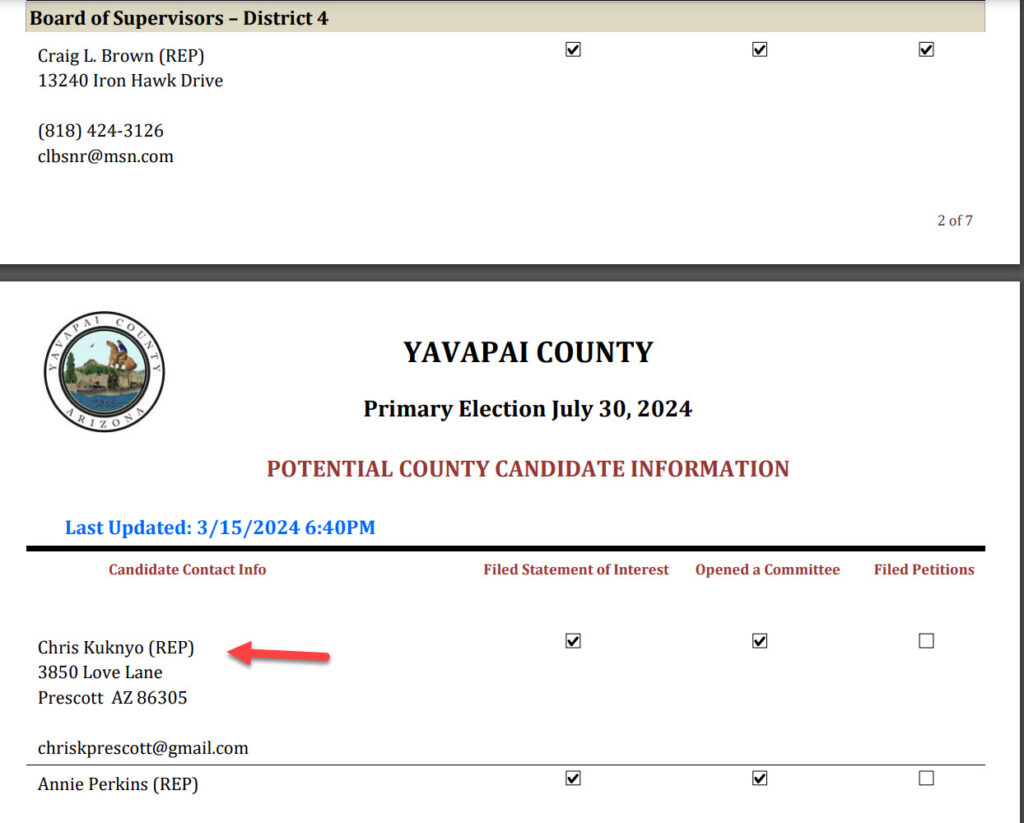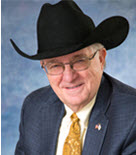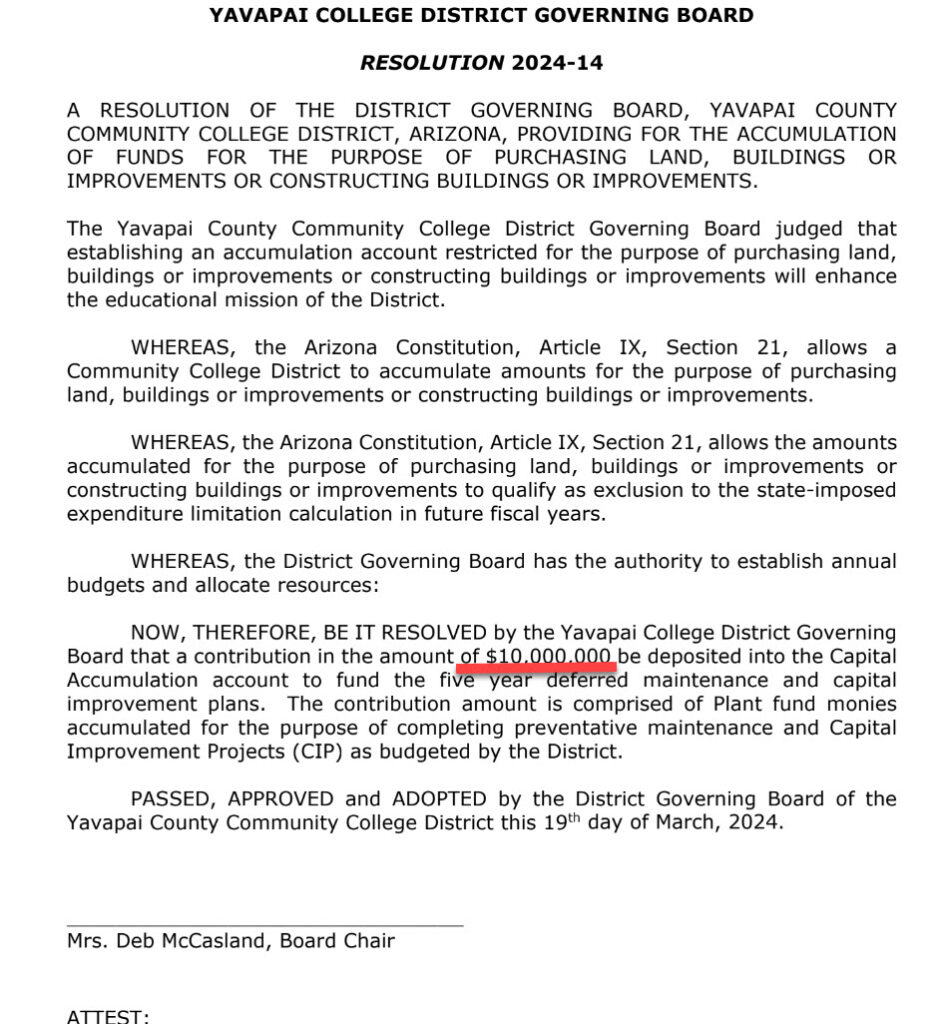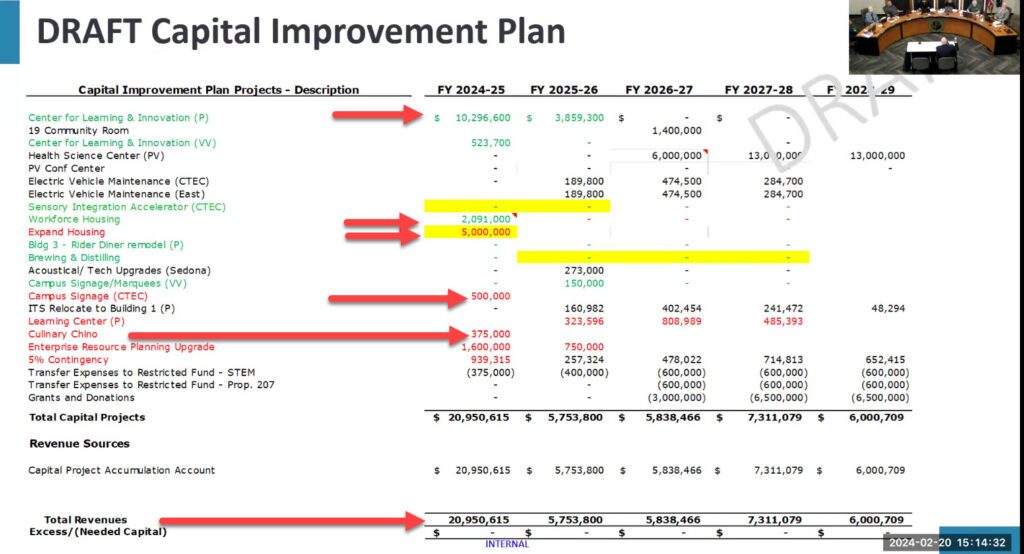About everything that can be done to discourage citizen attendance at District Governing Board meetings is being done by the College and the Board, which explains apathy and disinterest

Editor: Robert E. Oliphant

Editor: Robert E. Oliphant
The Yavapai Community College Foundation has established a target of approximately $5 million to help fund construction of the Health Science Center on the Prescott Valley campus. As part of its fundraising efforts, the Foundation has devised various naming opportunities for potential donors.
For those interested in contributing to the development of this new facility, there is additional information below.
It is important to note that, in response to challenges securing expected state or federal funding, the College’s District Governing Board, at the College’s request, has postponed the construction timeline from fall 2024 to around 2026-2027. The College has indicated that it remains committed to continue to explore state and federal avenues for potential support for the project.


 The Yavapai Community College District Governing Board was informed during its February 20 meeting that the College, in collaboration with the Mountain Institute Career and Technical Education District (MICTED), was planning to establish a culinary training facility at the College’s Chino Valley Center. It was described as an initiative that stemmed from the success of the training program already in place at Prescott High School under the auspices of the Mountain Institute.
The Yavapai Community College District Governing Board was informed during its February 20 meeting that the College, in collaboration with the Mountain Institute Career and Technical Education District (MICTED), was planning to establish a culinary training facility at the College’s Chino Valley Center. It was described as an initiative that stemmed from the success of the training program already in place at Prescott High School under the auspices of the Mountain Institute.

Editor: Robert E. Oliphant
 District Four Yavapai Community College Board member, Chris Kuknyo, has expressed interest in pursuing a position on the County Board of Supervisors for District Four. He has taken initial steps by filing a statement of interest and establishing a committee. However, he has not taken the final step of filing his petition.
District Four Yavapai Community College Board member, Chris Kuknyo, has expressed interest in pursuing a position on the County Board of Supervisors for District Four. He has taken initial steps by filing a statement of interest and establishing a committee. However, he has not taken the final step of filing his petition.
Kuknyo joins a cohort of Republicans vying for this seat, currently occupied by Craig Brown since 2011. Should Kuknyo proceed and win in the July 30 primary, he will need to resign from the Yavapai District Governing Board he currently occupies.


District Governing Board member Ray Sigafoos
You may view Mr. Sigafoos’ request for adding the line to the agenda in the video below:


 The Yavapai Community College District Governing Board meeting will be held at the Sedona Campus on Tuesday, March 19. The session will commence promptly at 1:00 p.m. Residents are invited to voice their concerns or opinions to the District Governing Board during the call to the public, typically held at the outset of the meeting.
The Yavapai Community College District Governing Board meeting will be held at the Sedona Campus on Tuesday, March 19. The session will commence promptly at 1:00 p.m. Residents are invited to voice their concerns or opinions to the District Governing Board during the call to the public, typically held at the outset of the meeting.
This meeting presents an important chance for community members to weigh in on the proposed 4% cumulative tax rate increase for next year’s budget. Your input matters, and this forum offers a platform for your voice to be heard.
Please note that in order to accommodate all speakers, the Board typically limits public comments during the open call to three minutes per person.